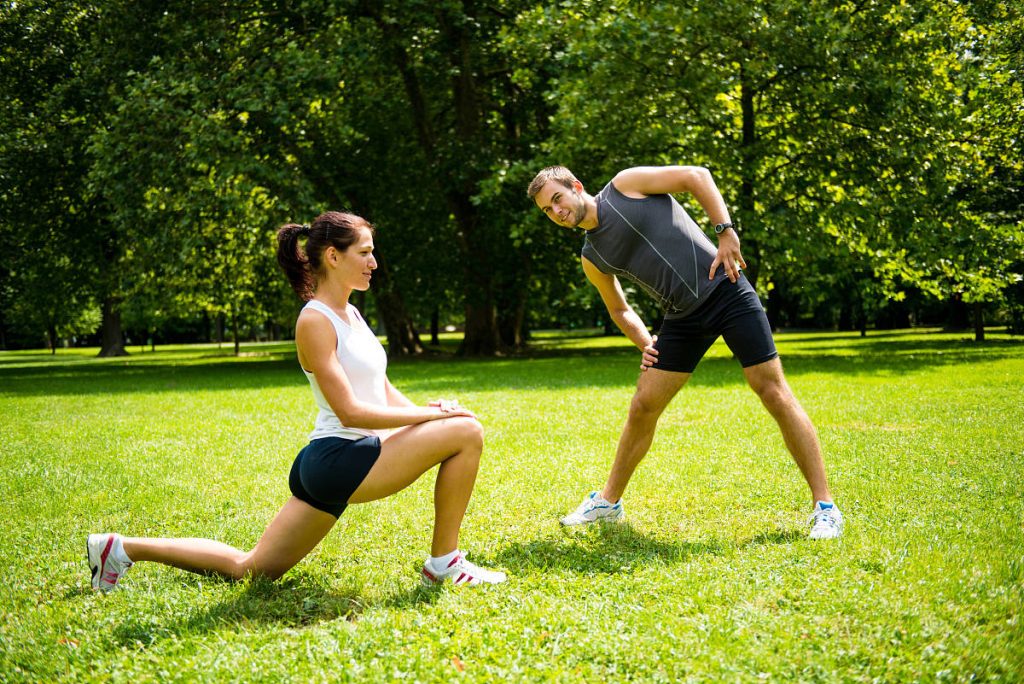Introduction
We’ve all heard that regular exercise is essential for good health, but sometimes it feels like we need to commit hours at the gym or follow an intense workout routine to reap the benefits. What if I told you that just a few minutes of exercise a day could make a significant difference to your health? You don’t need to be a fitness fanatic to enjoy the many perks of staying active. In fact, even short bursts of physical activity can improve your physical and mental well-being in ways that may surprise you.
In this article, we’ll explore how dedicating just a few minutes a day to exercise can have profound health benefits, ranging from increased energy levels to better mood, improved heart health, and more. Whether you’re pressed for time or just starting your fitness journey, you’ll see why even a small amount of daily exercise can be a game-changer for your health.
1. Boosting Heart Health in Just Minutes
One of the first benefits of short, regular bursts of exercise is improved heart health. It doesn’t take hours of intense cardio to see improvements in cardiovascular fitness. Studies have shown that even a few minutes of aerobic activity can help reduce your risk of heart disease by improving circulation, lowering blood pressure, and increasing the efficiency of your heart.
- How it works: Exercise helps strengthen the heart muscle, making it more effective at pumping blood. This increased efficiency leads to better oxygen delivery throughout the body, lowering your risk of heart attacks, strokes, and high blood pressure.
- What to do: Quick, high-intensity activities like brisk walking, jumping jacks, or cycling for just 5-10 minutes a day can get your heart rate up and deliver immediate cardiovascular benefits.
2. Enhancing Mental Health and Mood
Exercise isn’t just great for your body; it’s fantastic for your mind too. Just a few minutes of physical activity can trigger the release of endorphins, often referred to as the “feel-good” hormones, which can help combat stress, anxiety, and even depression.
- How it works: When you exercise, your body produces endorphins and serotonin, chemicals that promote feelings of happiness and well-being. Exercise also helps reduce the levels of cortisol, the stress hormone, in your body.
- What to do: Even a 5-minute session of deep breathing exercises combined with light stretching or a quick walk around the block can significantly improve your mood and reduce stress levels.
3. Boosting Your Energy Levels
Feeling sluggish and tired during the day? A quick burst of exercise might be the answer. While it might seem counterintuitive to get moving when you’re already exhausted, short bursts of activity can actually increase your energy levels and help you feel more alert.
- How it works: Physical activity increases blood flow to the brain, which helps improve oxygen delivery and energy production in the cells. Exercise also stimulates the release of adrenaline, a hormone that can boost your energy and focus.
- What to do: A 5-minute round of jumping jacks, stair climbing, or a brisk walk can help shake off fatigue and provide a natural energy boost.
4. Improving Sleep Quality
If you struggle with insomnia or poor sleep quality, short bursts of exercise throughout the day can help improve your rest at night. Engaging in physical activity helps regulate your sleep patterns, making it easier to fall asleep and stay asleep longer.
- How it works: Exercise helps lower body temperature and stimulates the production of melatonin, a hormone that helps regulate sleep. In addition, physical activity promotes relaxation, reducing feelings of restlessness that can interfere with sleep.
- What to do: Light exercises such as yoga, stretching, or a short walk after dinner can help calm your mind and body, setting the stage for better sleep.
5. Strengthening Your Muscles and Bones
You don’t need long hours in the gym to build stronger muscles and bones. In fact, weight-bearing exercises can help improve bone density and increase muscle strength, and even short bursts of these activities can provide lasting benefits over time.
- How it works: Weight-bearing exercises, like bodyweight squats or lunges, stimulate bone growth by putting stress on your bones, which promotes bone density. Short, consistent sessions also help increase muscle mass and strength.
- What to do: Try doing a few minutes of bodyweight exercises like squats, lunges, or push-ups. These simple movements work major muscle groups and help keep your bones strong.

6. Improving Flexibility and Mobility
Flexibility doesn’t only come from long stretching sessions. Short, regular stretching exercises throughout the day can help improve your range of motion, reduce muscle stiffness, and prevent injuries.
- How it works: Stretching improves the elasticity of muscles and connective tissues, which helps maintain flexibility and joint mobility. This can prevent stiffness and reduce the risk of muscle strains and joint pain.
- What to do: Take a few minutes throughout the day to stretch your arms, legs, and back. Yoga poses like Downward Dog or child’s pose are great for gently stretching the whole body.
7. Supporting Weight Loss and Maintaining a Healthy Weight
If weight loss is one of your goals, it’s important to know that even small amounts of exercise can help. Regular physical activity boosts metabolism and burns calories, which can contribute to weight loss or help maintain a healthy weight.
- How it works: Exercise increases your calorie burn, and even a short burst of activity can jump-start your metabolism. Regular movement throughout the day helps regulate your appetite and encourages fat loss.
- What to do: High-intensity interval training (HIIT) or even just 10-minute bursts of cardio like jumping jacks or dancing can effectively burn calories and support weight loss.
8. Reducing Chronic Disease Risk
One of the most powerful benefits of daily exercise—whether it’s for 5 minutes or 30 minutes—is the long-term protection it offers against chronic diseases. Regular exercise can lower your risk of developing conditions such as diabetes, hypertension, and certain types of cancer.
- How it works: Physical activity helps regulate blood sugar, lower cholesterol levels, reduce blood pressure, and promote healthy blood circulation, all of which contribute to reduced chronic disease risk.
- What to do: Short, daily activities like walking, cycling, or even taking the stairs can significantly reduce your risk of chronic illnesses over time.
Conclusion
It’s easy to get caught up in the idea that exercise has to be a time-consuming, high-intensity workout to be effective. But the truth is, even just a few minutes of physical activity each day can bring incredible health benefits. Whether it’s boosting your energy, improving your mood, or reducing your risk of chronic diseases, short bursts of exercise can have a lasting positive impact on your overall health.
So, the next time you’re pressed for time or feeling too tired to work out, remember that even a small amount of movement can make a big difference. Start with just five minutes a day, and gradually increase the intensity or duration as you get comfortable. Your body will thank you for it!

















































